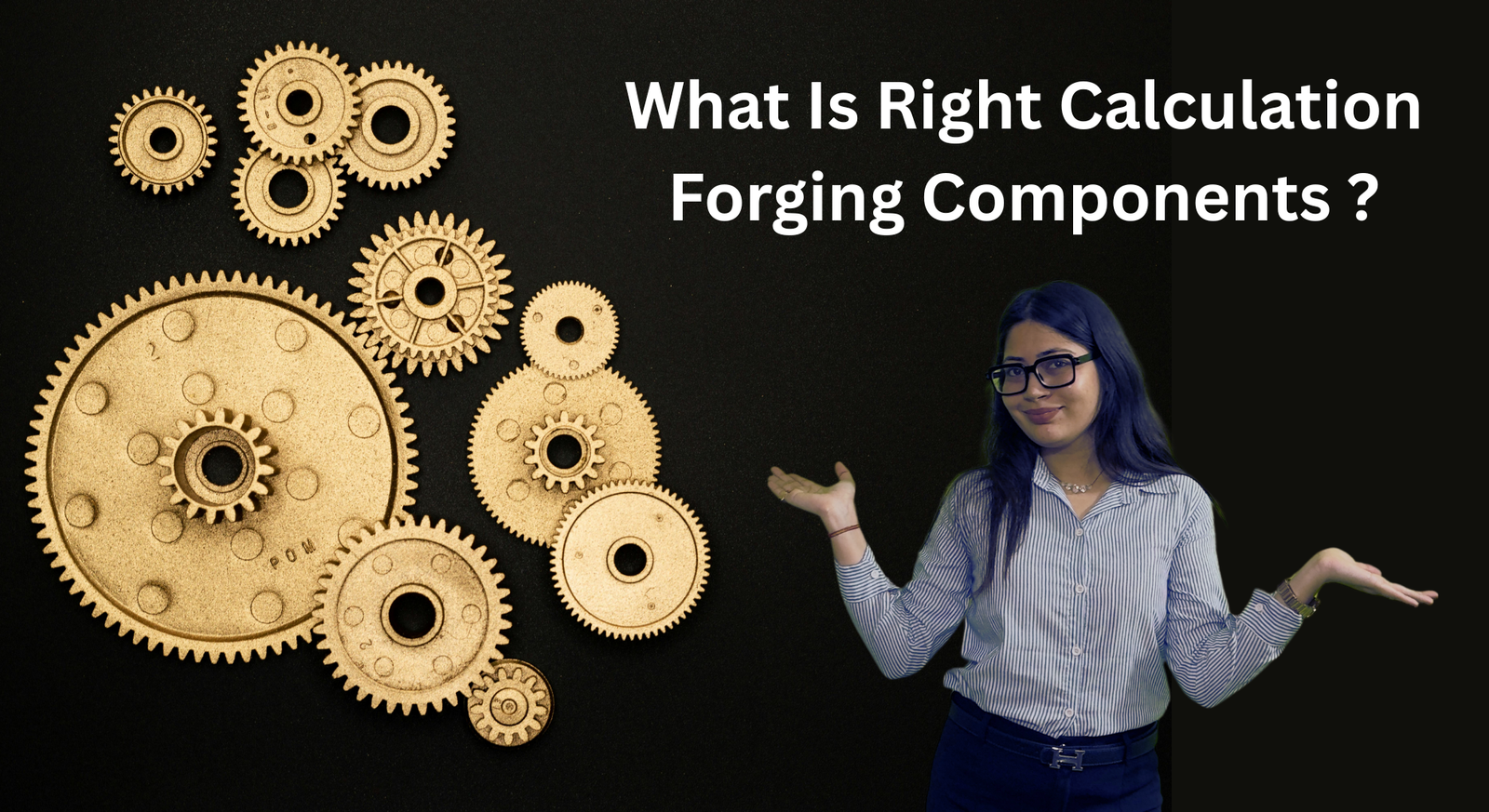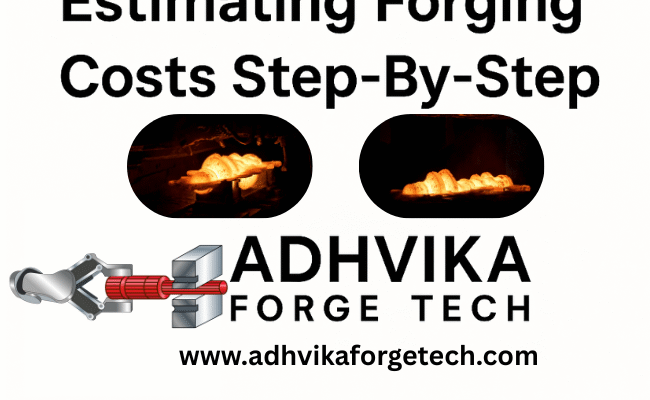Forging Cost Estimates Step-By-Step

Introduction
Forging is a vital manufacturing process in the metalworking industry, known for producing high-strength and reliable components. However, for businesses and buyers, understanding how forging costs are calculated is crucial for effective budgeting, project planning, and profit management. In this guide, we will break down the key steps in estimating the cost of forging — helping you make smart, profitable decisions.
🔧 Step-by-Step Forging Cost Calculation Process
Step 1: Define the Forging Method
Before any cost estimate can begin, it’s essential to identify the forging method:
- Closed Die Forging (Impression Die)
- Open Die Forging
- Ring Rolling Forging
- Cold/Warm Forging
- Precision Forging
Each method impacts cost differently based on the tooling, material, and energy usage involved.
Step 2: Raw Material Cost Calculation
Raw material is the largest cost driver in forging.
Formula:
Raw Material Cost = (Net weight of finished part + Material wastage) × Material rate per kg
- Net Weight: Weight of final forged product
- Wastage: Allowance for flash, trimming, and scale loss (can range from 10% to 50%)
- Material Type: MS, Alloy Steel, Stainless Steel, Aluminum, Titanium, etc.
Example:
If the part weighs 5 kg and 25% material loss is expected, then
Total material required = 5 + (25% of 5) = 6.25 kg
If raw material cost is ₹90/kg, then material cost = ₹562.5
Step 3: Die & Tooling Cost Estimation
Tooling cost is usually a one-time investment but must be distributed over the batch.
Key considerations:
- Tool design complexity
- Die material (H13, EN31, etc.)
- Life of the die (number of shots)
- Tool maintenance
Formula:
Tooling cost per part = Total Tooling Cost / Expected No. of Forgings from Tool
Example:
If die costs ₹1,00,000 and it lasts for 20,000 shots:
Tooling cost per part = ₹5
Step 4: Heating & Energy Cost
Heating the billets to forging temperature involves significant energy. This includes:
- Fuel Cost (Induction, Gas, Oil-fired furnace)
- Electricity Consumption
Formula:
Energy cost = kWh consumption × Electricity Rate
Estimate roughly ₹3 – ₹7 per kg depending on furnace type and efficiency.
Step 5: Forging Operation Cost
Includes:
- Machine hourly rate
- Forging cycle time per piece
- Labor cost
- Wear & tear
Formula:
Forging cost per part = (Machine hourly rate × Time per forging) + Labor cost
Example:
If machine rate is ₹800/hr and one forging takes 1.5 mins =
₹800 / 60 × 1.5 = ₹20 per part
Add ₹10 for labor = ₹30 total
Step 6: Trimming & Finishing
This step includes removing flash, extra material, and machining allowances.
- Trimming press cost
- Grinding or CNC cost (if applicable)
- Deburring, shot blasting, etc.
Add approx. ₹5–₹15 depending on precision and size.
Step 7: Quality Inspection & Rejection Handling
- Inspection tools, NDT, hardness checks
- Rejection rate consideration (typically 1–5%)
Add rejection buffer cost = Total cost × Rejection rate %
Step 8: Packaging and Dispatch
Includes:
- Packing material (wooden box, wrapping, etc.)
- Transport to dispatch point
Generally ₹3–₹10 per piece depending on size and packing type.
📊 Cost Estimation Summary Table
| Cost Head | Estimated Cost (INR) |
|---|---|
| Raw Material | ₹75 |
| Tooling (per part) | ₹5 |
| Heating & Energy | ₹35 |
| Forging Operation | ₹30 |
| Trimming & Finishing | ₹10 |
| Quality & Rejection | ₹8 |
| Packaging | ₹5 |
| Total Cost | ₹168 |
💡 Additional Factors Affecting Forging Cost
- Batch Size: Higher volumes reduce per-part cost
- Automation Level: Robotic forging lines reduce labor but increase CapEx
- Material Availability: Exotic materials like Titanium are costlier
- Post-Processing: Heat treatment, shot blasting, or machining
⚙️ Component Examples & Cost Range
| Component | Forging Type | Cost Range (PC/kG) |
|---|---|---|
| Automotive Control Arm | Aluminum Closed Die | ₹34 – ₹60 |
| Bearing Ring | Open Die | ₹22 – ₹45 |
| Flange (EN8/EN24) | Open Die | ₹32 – ₹78 |
| Hip Stem (Titanium) | Precision Forging | ₹2000 – ₹4000 |
🚀 Adhvika Forge Tech – Your Forging Cost Expert
At Adhvika Forge Tech, we don’t just supply machines — we offer complete turnkey solutions, including:
- Forging Cost Optimization
- Product Development
- Die Design & Simulation
- Machine Supply & Setup
- Yield Improvement
Our expert team helps reduce forging costs through smart planning, efficient machine usage, and automated forging solutions.
✅ Conclusion
Forging cost estimation is a critical task for success in manufacturing. By breaking it down step-by-step — from raw material to dispatch — industries can plan smart, reduce costs, and ensure profitability.
Let Adhvika Forge Tech be your partner in precise, low-cost, high-yield forging production.
#ForgingCost #AdhvikaForgeTech #ClosedDieForging #OpenDieForging #ForgingEstimates #ForgingMachine #TurnkeySolution #ElectricScrewPress #

